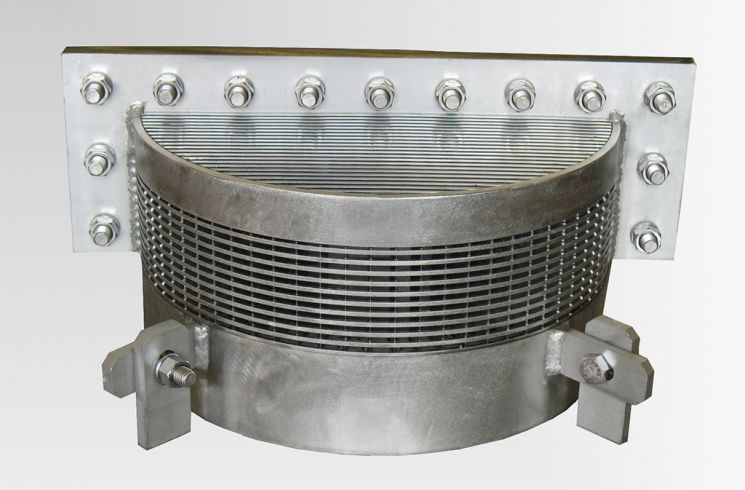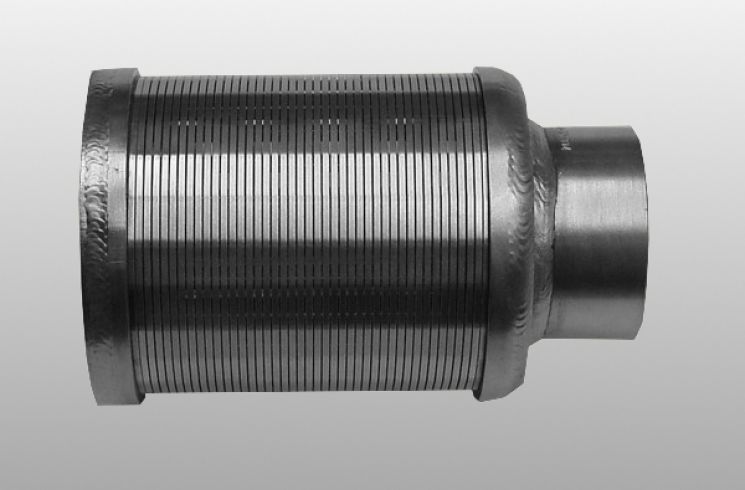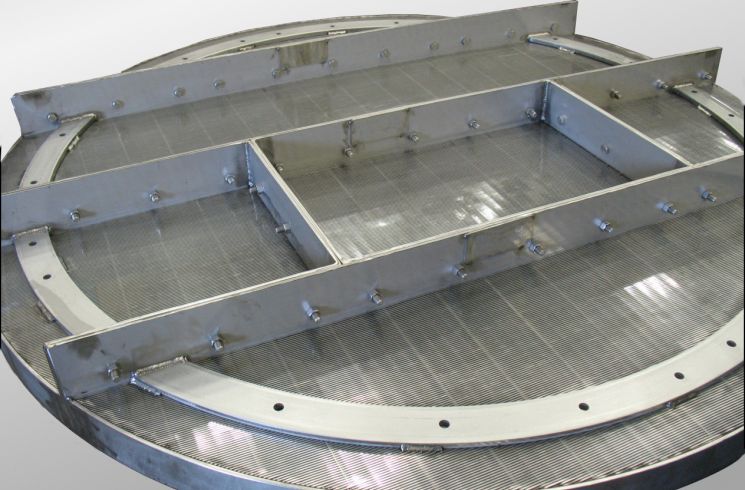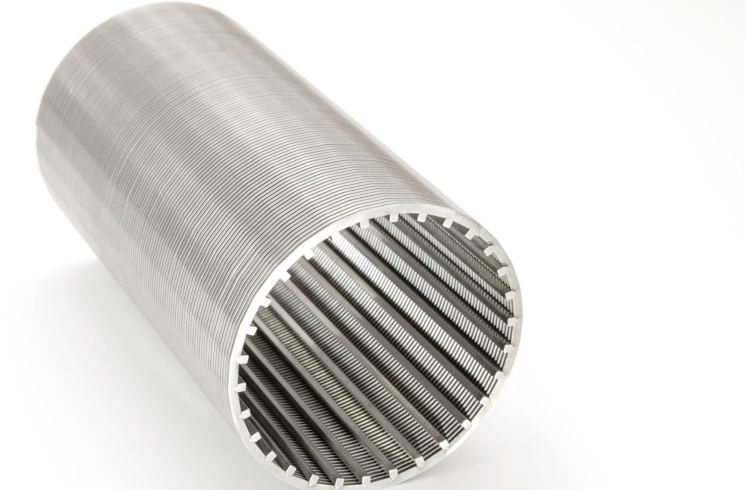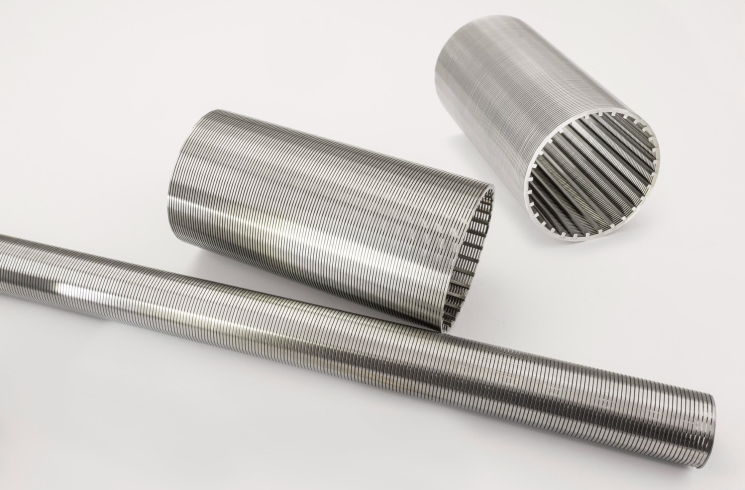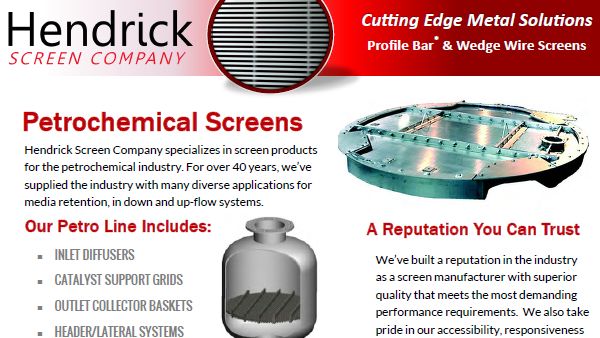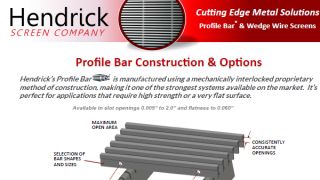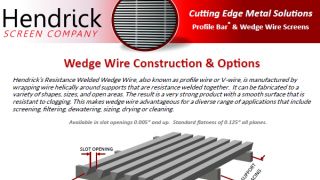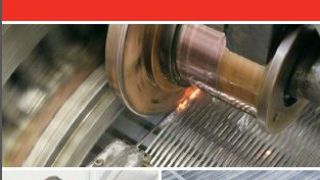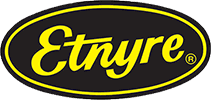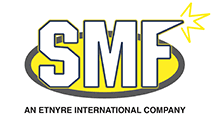Screens for Petrochemical Industry
Fueling the Growth of the Screen Industry
Quality Screens for the Petrochemical Market
Hendrick screens are used for media retention in many diverse petroleum refining processes including FCC units, hydrocrackers, catalytic reforming units, amine gas treaters and mole sieve dehydrator beds, to name a few. HSC also supplies screens for sand-filtering units as well as Profile Bar screens used in nutshell filters. Hendrick Screen’s wedge wire design and rugged construction aid in screen longevity, which minimizes downtime due to screen maintenance/replacement, and helps increase production efficiencies. Hendrick’s automated manufacturing controls allow us to produce our screens with tight slot tolerances and slot openings as small as 0.005”.
Hendrick screens can be produced using a variety of materials, including:
- 2205 Duplex
- 2507 Super Duplex
- Hastelloy
- Inconel
- 321 Stainless Steel
- 410 Stainless Steel
- 430 Stainless Steel
- 316L Stainless Steel
- 304L Stainless Steel
Hendrick can also design your screens to handle pressures in excess of 150 psi and operating temperatures above 1,000 degrees Fahrenheit.
Our Petrochemical Screen Products
- Inlet baskets
- Catalyst support grids
- Outlet baskets
- Header laterals
- Hub laterals
- Nozzle screens
- Strainer baskets
- Scallops
- Well screens
Benefits of Our Petrochemical Screens
Hendrick Screen Company engineers petrochemical screen products that provide long-lasting and dependable performance to meet your filtering needs. These screens have several advantages:
- Wedge wire design helps to resist plugging
- Hendrick helps design your screens to carry loads from 10 – 200 psi, and in high operating temperatures
- Hendrick’s wide selection of wire profiles enables us to pick the best wire to meet your open area requirements
- Hendrick’s manufacturing processes enable us to produce our screens with close tolerances and slot openings from 0.005”
Screens in the Refining and Petrochemical Industry
Hendrick’s petrochemical screen products are engineered and manufactured to meet or exceed your filtering needs, providing long-lasting, dependable performance. Made from the best materials available for your specific application, our products are designed and fabricated to provide superior strength. Also, our wedge wire shapes naturally resist plugging, which helps promote even distribution and uniform flow across the beds. Hendrick Screen’s Profile Bar also allows your support grids to withstand greater loads without sacrificing screen performance.
Corrosive fluids, intense pressures and high temperatures significantly strain process vessel screens. If the screen fails, you may be facing downstream damage to expensive equipment and costly downtime for repairs; that’s why Hendrick’s screens are manufactured to operate in the harshest conditions with reliable service. In addition to our standard configurations, we work with our customers to engineer and custom manufacture petrochemical screens to their precise specifications.
Use Cases of Stainless Steel Well Screens for the Petrochemical Industry
Stainless steel well screens are a great alternative to carbon steel in corrosive environments. Our screens can operate in the harshest conditions with reliable service. Some popular applications of well screens in the oil and gas industry include:
- Crude oil distillation: Corrosion concerns during this process include high-temperature sulfidation and corrosion by naphthenic acid. Typically, this process uses 304, 316 and 410 stainless steel screens. These screens can withstand 500-750 degrees Fahrenheit, and 304 stainless steel offers excellent resistance to naphthenic acid corrosion.
- Catalytic reforming: The main corrosion agents in this process include ammonium chloride and cooling water, which causes pitting corrosion. We use 304 and 316 stainless steel for catalyst support grids and screens.
- Hydrocracking: Polythionic stress corrosion and embrittlement are the leading causes of corrosion in this process. Hydrogen can also cause corrosion, depending on the compounds processed. Our 304, 316, 321, 410 and 430 stainless steel nozzle screens can withstand these conditions.
- Hydrotreating: Hydrotreating exposes equipment to corrosion caused by ammonia, hydrogen sulfide and polythionic acids. Additionally, high temperatures and pressures cause embrittlement. We make the inlet and outlet baskets for this process using 304, 316, 321, 410 and 430 stainless steel.
- Sand control: Hendrick screens prevent impurities like sand and rocks from entering the well and clogging the equipment. Stainless steel screens are plug resistant and have small diameters to filter out the finer particles.
Why Hendrick?
At Hendrick, we understand your screening needs and go the extra mile to be absolutely certain our screens are the best they can be. We have been supplying screen products to the refining and petrochemical industry for decades, and in that time, we built a reputation as a manufacturer of high-quality, durable screens. In addition to offering our customers reliable screen solutions, we are known for being accessible and responsive, providing our customers with world-class service. For products that meet or even exceed your petrochemical processing needs, count on Hendrick Screen.
"I love that I can send over an inquiry and generally hear back within a couple of hours. And when production schedules are tight, they always work with us to get the product here by the time we need it. Great company!"
Andy
"The screen portion of the project that Willie handled for us was the way all companies nowadays need to get back to. Willie understood our time constraints and he and the shop did a great job getting the screens completed even with the curves we threw them. Great job. Thanks."
Al Z.


